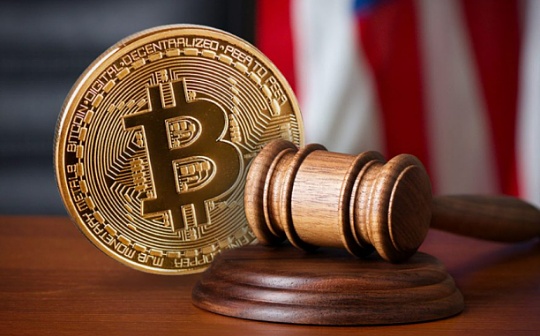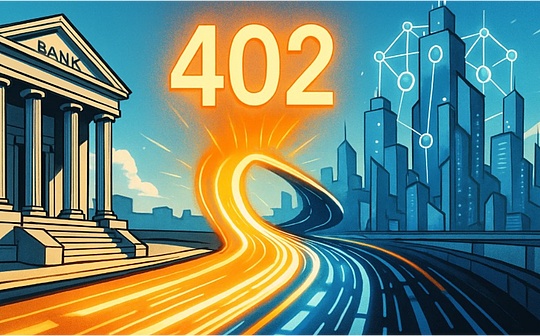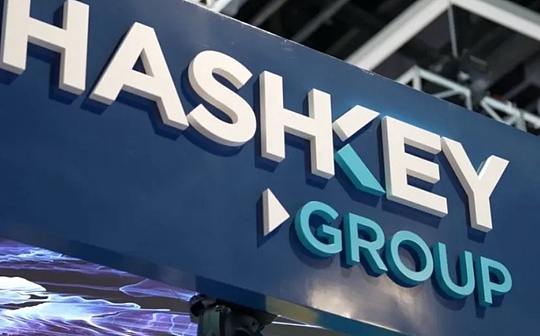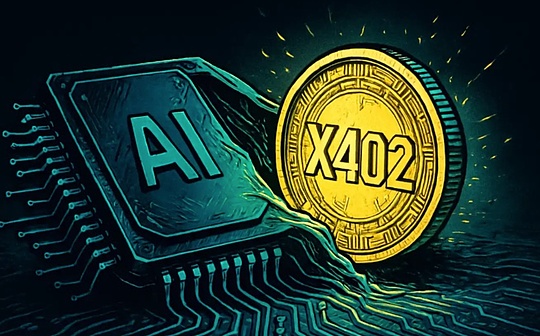
Author: Lawyer Chen Shanghai
1. The main regulatory agency in the United States
(1) The US Securities and Exchange Commission
The US Securities and Exchange Commission (SEC) is the first federal regulatory agency in the United States. It was established by the U.S. Congress in 1934 in accordance with the 1933 “US Securities Law” and the 1934 “Securities Trading Law”. It is mainly to cope with 1929The collapse of the stock market that has caused the Great Depression.As an independent federal government regulatory agency, the main responsibility of the SEC is responsible for protecting the fair and orderly operation of investors, maintaining the fair and orderly operation of the securities market, and promoting capital formation.
The current chairman of the CSRC Gary Gensler has said many times in public that except for the absolute decentralized virtual currency such as Bitcoin and Ethereum, most of the other projects issued virtual currencies should be regarded as “securities”, so they needApply for registration or application for exemption in SEC.
Because the SEC has very large jurisdiction, once digital assets are identified as “securities”, they need to comply with the relevant provisions of the SEC and fulfill their compliance obligations.And the above -mentioned digital assets are not limited to virtual currencies, but also digital assets such as NFT and stablecoin.
Since the second half of 2023, a series of SECs involving the operation of cryptocurrencies and decentralized finance (DEFI) have exacerbated the United States’ discussion about the future of cryptocurrencies, DEFI and Web3 technology.At present, the US Securities and Exchange Commission’s supervision of crypto assets as securities is still mainly targeted at the review and cracking down on unregistered tokens. In particular, SEC’s accusations on other exchanges such as Gemini and other exchanges such as GeminiDetermination and attitude of execution of supervision in the field of currency field.
Although such related discussions are still continuing, cryptocurrency companies, investors, and other related persons are paying close attention to how these developments will shape the future of US Web3, cryptocurrencies and decentralized finance.With the continuous supervision of SEC, the cryptocurrency and Web3 industries are obviously at the crossroads of the United States.
(2) Commodity Futures Trading Commission (CFTC)
As an independent federal agency in the United States, the US Congress was established in 1974 in accordance with the “Commodity Futures Commission Law” in 1974. Its goals include promoting competitive and efficient markets and protecting investors from manipulation.The abuse of trade behavior and fraud.
CFTC is mainly responsible for supervising the US derivative market.This includes commodity futures, options and swap markets and OTC transactions (OTC) markets.In order to fully supervise these markets, CFTC is mainly responsible for regulating the following organizations: transaction organizations, such as designated contract markets (exchanges for custody futures transactions) and swap execution facilities (the platform allows participants to buy and sell after -to -date).
In July 2023, the US Senate proposed a two -party bill, which aims to “include cryptocarning assets into regulatory scope” by awarding the supervision responsibility of the Commodity Futures Trading Commission (CFTC) to the supervision of most forms of cryptocurrencies.
This new bill was initiated by Senator Cynthia Lummis and Kiristen Gillibrand, and based on the draft legislative case proposed by the two people in the previous meeting of Congress.In the case of the crash of the FTX of the cryptocurrency exchanges and not clearly instructions in Congress, the position adopted by the US Securities and Exchange Commission (SEC) is that almost all digital assets are securities, so they belong to their jurisdiction.
The core of the bill is to grant CFTC’s exclusive jurisdiction to regulate transactions involving “encrypted assets”. “Crypto assets” are defined as electronic assets that give economic rights or record access to distributed ledger technology or similar technology.”Crypto assets” also include “auxiliary assets”, that is, assets such as cryptocurrencies sold in investment contracts, which are usually used to provide financing for crypto projects in the early stages.According to the bill, even if the issuer of the auxiliary assets “participates in the entrepreneurial or management work that determines the value of the tokens” -a according to the Supreme Court, establish 293 (1946) and its follow -up in the Supreme Court in the SEC V. WJ Howey Co., 328 US, 328 USSIt is a factor that is conducive to the asset as securities -as long as the issuer follows certain SEC disclosure requirements, tokens are regarded as the jurisdiction of goods and belong to CFTC.
(3) FINANCIAL CRIMES ENFORCEMENT Network (FINCEN)
The US Ministry of Finance established the Financial Crime Law Enforcement Agency in 1990 to provide multi -source financial information and analysis networks within the government.In 1994, the business scope of the organization was expanded, including the regulatory responsibility for the management of the Bank of Secret Law. The law is one of the most powerful weapons for the United States to prevent corruption in the US financial system.Its mission is to enhance US national security by improving the transparency of the US and international financial systems, deterrent and investigating criminal activities, and protect the financial system from abuse.
On October 19, 2023, FINCEN announced a notice of proposed rules (NPRM), which lists international transliterated virtual currencies (ie, CVC mixes) as a type of transaction at present.The notice also emphasizes that various illegal actors around the world have brought the risks brought by the wide use of the CVC hybrid service and put forward a rule to increase the transparency of the CVC mixing to combat the Hamas, the Islamic Islamic jilation organization and the Palestinian Islamic jihad organization andThe malicious actor, including the Democratic Party, uses a CVC hybrid service.The NPRM is the key part of the Ministry of Finance to improve the transparency of the CVC hybrid activity.
Wally Adeyemo, deputy Minister of Finance, also said: “Today’s actions highlight the use of the Ministry of Finance to fight against various illegal actors’ use of virtual currency mixing, including national access to network behavior behavior”Criminal Criminals and Terrorism” 1 “1
The lack of transparency in the international CVC hybrid activity is serious money laundering and national security risks. Increased transparency related to this activity is a key component to prevent illegal actors from entering the United States and the global financial system.The improvement of this transparency also meets the atrocities of terrorist organizations such as Hamas and Islamic Battle Organizations such as Hamas and the Islamic Battle of Palestine for a long time.Its supporters make their efforts to avoid US and global sanctions.In order to support these important goals, the NPRM will require the financial institutions covered to report information about transactions when they know, doubt, or have reason to suspect that transactions involving CVCs in the United States or overseas jurisdictions.
(4) The Foreign Asset Control Office of the United States Treasury (OFFICE of Foreign Assets Control (OFAC))
The Foreign Asset Control Office (OFAC) is the financial intelligence and law enforcement agency of the US Department of Finance. It comes from the “IEEPA) passed in 1977. It mainly manages and enforces economic and trade sanctions to support the US countries in the United StatesSecurity and foreign policy goals.According to the emergency power of the President ’s country, OFAC carried out activities for foreign countries as well as foreign countries and various other organizations and individuals (such as terrorist organizations), which is regarded as a threat to the US national security.
Just in August 2022, the Foreign Asset Control Office (OFAC) of the Ministry of Finance of the US Treasury sanctioned a cryptocurrency “mixture”.In addition, OFAC also included some Ethereum addresses related to the agreement on the blacklist.
Because one of the main tools of OFAC is to specifically designate the list of nationals and the list of blockaders (SDN), the list of individuals and legal entities that have been sanctioned.Assets of sanctions within the jurisdiction of the United States are frozen, and Americans are generally banned from dealing with the sanctions.2 By being separated from the US financial system, it is difficult for these people to carry out international business, especially when trading in the US dollar.This is not the first time of OFAC in the field of encryption. It has previously sanned the encryption company or agreement controlled by centralized entities.
After being sanctioned by OFAC, any person/any wallet (that is, the American individuals and enterprises in the United States, and the citizen and institutions of the United States or the enterprise) in the interaction with the sanctioned entity or the above Ethereum)Strict responsibilities must be assumed in accordance with US law.
Although such sanctions are designed to target bad actors in this field, they may have an impact on those who seek innovation and establish better or more decentralized ecosystems.Because sanctions and lack of clear enforcement mechanisms may increase the difficulties of web3 and other entities related to cryptocurrency -related entities through legal banking system access or export services.Because sanctions depend on the active enforcement of banks and other financial institutions, these entities may be too cautious and strict with their compliance measures.
(5) The National Taxation Administration (IRS)
The IRS (IRS) belongs to the US Department of Finance and is mainly responsible for managing and implementing the US federal tax law.As early as March 2014, IRS issued the 2014-21 notice of the “Guidance On Virtual Currency” for taxes, defining digital assets as “Property”.On August 25, 2023, IRS issued a proposed regulations, requiring domestic and foreign exchanges and other types of digital asset institutions (1) to collect identity information of their customers, and (2) to report to the US Taxation Agency and these US customers in the United StatesCustomer trading activities.The regulations will be officially effective in 2025. At that time, the US taxpayer and the IRS will receive the same type of digital asset information received by the same type of digital asset information received when trading traditional financial assets (such as stocks and bonds) with existing brokers.
At present, this 282 -page regulatory plan only implements part of the “Infrastructure Investment and Employment Act”, and only after considering the opinions of stakeholders in the U.S. State Taxation AdministrationLegal effect.
2. Financial Innovation Act
On July 12, 2023, Cynthia Lummis (Wyoming, Republican Party) and Senate Agricultural Committee member KIRSTEN GILLIBRAND (New York State Democratic Party) re-launched Lummmis-Gillibrand Responsible Financial Innovation Plan (Lummmis-Gi) llibrandResponsible Financial Innovation Act, hereinafter referred to as “RFIA”).Although it is unclear whether RFIA will be passed in the Senate in the current form, some consumer protection clauses have been modified compared to the previous 2022 version to win more votes.Regardless of the feasibility of RFIA in the future, RFIA has caused widespread discussion in Congress.For example, shortly after the re -introduction, the terms involving encrypted asset anti -money laundering review standards and anonymous encrypted asset transactions have been added to the 2024 National Defense Authorization Act (NDAA).
Compared with RFIA’s initial version of 2022, the 2023 version reflects the amendment to adapt to the changing cryptocurrency market, especially the impact of a series of cryptocurrency exchanges since 2022.
Therefore, the RFIA clauses that have been updated since 2022 mainly include:
1. Change the Federal Supervision Framework
According to the current draft, RFIA is committed to creating a new federal framework to monitor crypto assets and encrypted asset intermediaries.This framework is committed to clarifying and distinguishing between CFTC and SEC governance roles by providing necessary legal power, guiding these institutions to participate in the formulation of rules, and introducing the concept of customer protection and market integrity.3 These regulations will have a significant impact on these institutions, because determining whether a certain asset is a securities will determine the regulatory agencies, restrictions and obligations of encrypted assets and related entities. The framework includes:
(1) Enhance the power of the American Commodity Futures Trading Commission
CFTC’s existing legal power of spot market products, including cryptocurrencies, is limited to law enforcement power of fraud and manipulation in these markets; however, CFTC’s regulatory authority is limited to the derivative market (such as futures and drops).Therefore, in the draft, RFIA will provide CFTC’s legal power to regulate the spot crypto asset market, including cryptocurrency issuers, crypto assets, and other aspects of the encrypted asset market.
(2) Scope of the jurisdiction of the spot market
RFIA awarded the jurisdiction of CFTC to all unprofitable crypto assets of securities.This will marked a wide range of jurisdictions of the commodity futures trading committee for the first time.In particular, RFIA also gives CFTC an exclusive jurisdiction of any agreement, contract or transaction involving encrypted assets (including auxiliary assets).In addition to limiting the jurisdiction of CFTC to non -securities and commercial alternative crypto assets, RFIA also excludes digital collections and other unique encrypted assets outside the jurisdiction of CFTC.4.Nevertheless, this extensive jurisdiction marks that CFTC has become the main crypto asset supervision agency.
(3) Crypto asset exchange
RFIA defines the “encrypted asset exchange” as a trading facility that listed at least one type of encrypted assets for transactions.Any trading agencies seeking to provide encrypted assets or paying the stable currency market must register in CFTC, except for decentralized agreements.RFIA requires each encrypted asset exchange to establish and implement its own rules to ensure that only assets that are not easy to be manipulated and protect customer assets.According to RFIA, CFTC has new supervision of registered crypto asset exchanges.Although the encrypted asset exchange is banned from self -employed transactions, the US Commodity Futures Commission may participate in the formulation of rules to establish standards that allow cities.In addition, any changes in the control rights of encrypted asset exchanges that lead to more than 25% of the ownership of individuals or entities must first be approved by CFTC.
2. The role of the US Securities and Exchange Commission
Although RFIA establishes CFTC as the major federal regulatory agencies of most encrypted assets, SEC has jurisdiction over securities digital assets.If the relevant digital assets provide debt or equity, liquidation rights, dividend payment rights, or other financial interests of asset holders, the asset will not be regarded as “encrypted assets” or “auxiliary assets” to receive CFTC from CFTCJurisdiction, but under the jurisdiction of SEC.
If the conflict of digital assets should be regarded as an encrypted assets, RFIA authorizes the Court of Appeals in Washington, the United States.
These regulations represent major changes to the status quo and try to provide a clearer regulatory system than the previous version of the RFIA.According to the current draft, the US Securities and Exchange Commission will not play the role of major digital asset supervision agencies, but it still has the right to regard certain assets as securities and question the jurisdiction of the Commodity Futures Trading Commission to other assets.A radical SEC, such as the current SEC, can use this power to maintain an important role in cryptocurrency supervision.
3. Customer protection and market integrity bureau
According to the current draft, RFIA has created a customer protection and Market Integrity Authority (“Authority”), which is a self -discipline organization (“SRO”), an encrypted asset intermediary agency jointly combined by SEC and CFTC.The membership of the Authority is limited to encrypted asset intermediaries.The task of the Authority is to supervise, supervise, and restrict the encrypted asset intermediary agencies, which is essentially a self -discipline organization, although RFIA has not defined it as a self -discipline organization.
According to the RFIA, the Administration must allocate 13 board members according to the following proportion: three government directors (Director of CFTC Financial Innovation Office, Director of the SEC Financial Innovation Office, and Director of FINCEN), four independent directors appointed by the chairman, and six of them.Director appointed by members.5
4. Consumer rights protection
In the current draft, the RFIA clearly is to “provide consumer protection and responsible financial innovation, and incorporate encrypted assets into the scope of supervision.”And this new concern for consumer protection will run through all the terms of RFIA, and may affect the specific liquidation procedures after the bankruptcy of the cryptocurrency exchange in 2022.
(1) Reserve requirements proof settings
RFIA stipulates that all encrypted asset intermediaries must maintain a system to prove that the encrypted assets under the custody or other encrypted assets that are custody under the trustees or other ways to hold an encrypted asset can be encrypted or controlled by the intermediary agency.The system must be protected from customer data, proprietary information, and other data that may lead to operation or network security risks.The encrypted asset intermediary agency must hire an independent public accountant to verify the ownership or control of all hosted encrypted assets.
(2) Allow transactions
RFIA stipulates that each encrypted asset intermediary agency must ensure that the intermediary agency may be disclosed in the customer protocol that the intermediary agency may involve the allowable transaction to be allowed by customers to be encrypted assets.In addition, each encrypted asset intermediary must provide a clear notice to each customer and request the following content: (i) whether the customer encryption asset isolates and isolates from other customers assets; (ii)Under circumstances, how to deal with customer encryption assets and risk of losses; (III) intermediary agencies have the obligation to return the customer’s crypto assets to the period and method of the customer’s encryption assets according to the requirements; (IV) the applicable cost of the customer;Essence6
(3) Loan
RFIA stipulates that encrypted asset agencies must disclose any loan arrangements to customers before providing any loan services, including potential bankruptcy treatment of customer assets under bankruptcy.In any borrowing arrangement, crypto asset intermediaries must also disclose whether the intermediary agency is allowed to be unable to deliver customers’ encrypted assets or other mortgages, and if it fails to deliver, it must be resolved within a long time.It is worth noting that RFIA has clearly prohibited encrypted asset intermediaries that re -mortgage to encrypted assets.
Such a ban will make cryptocurrency intermediaries in an unfavorable position relative to the traditional loan.In traditional finance, lenders use re -mortgage to obtain credit for their own use, thereby achieving their goals.The ban on cryptocurrency intermediaries will limit their ability to assume similar risks for their purpose.
5. Stable currency
According to the currently drafted RFIA, no entity may issue a payment stablecoin except for the deposit institution and its subsidiary.This may affect the current stable currency issuer, many of which are not deposit institutions.
The term “payment stable currency” refers to the claim represented by distributed ledger: redeemed on demand, and exchanged for the US dollar pricing tool in one -to -one way; issued by commercial entities;The asset can be redeemed from the issuer or other people; it is supported by one or more financial assets, excluding other encrypted assets; it is designed to be used as an exchange medium 7.
The deposit institution needs to apply to the appropriate federal banking institution or the state bank supervision agency to apply for the issuance of stablecoins.If the federal banking institution or the state bank regulatory agency must think that paying stablecoins is unlikely to be carried out in a safe and stable way; or the custodian institution lacks resources and professional knowledge that manages stable coins;It will not be approved.
Once approved, the issuing deposit institutions must clearly disclose to customers that paying stablecoins should not be guaranteed by the US government nor can it be insured at federal deposit insurance companies.Although there is no guarantee or insurance for payment of stablecoins, people who have valid claims to pay stable coins have the right to give priority to any other claims of the agency when the deposit institutions are taken over.The stable currency assets required, including claims related to deposits.
6. Back illegal finance
(1) cryptocurrency ATM machine
RFIA provides a new system for cracking down on illegal finance. In the current draft, RFIA indicates that the financial criminal law enforcement network (“FINCEN”) requires the physical address of an information pavilion submitted and updated or operated by the owner of the encrypted asset information booth.In addition, FINCEN must require the owner and administrator of the encrypted assetstick to use the government’s identity certificate to verify the identity of each information kiosk.
(2) Fintech working group
RFIA also established an independent financial technology working group that combates terrorism and illegal financing, consisting of senior representatives of the Minister of Finance, FINCEN, the National Taxation Bureau, the Foreign Asset Control Office, and the Federal Investigation Bureau.
The working group has a wide range of duties, responsible for independent research on terrorists and illegal use of new financial technologies; analyzes how crypto assets and emerging technologies enhance the national security and economic competitiveness of the United States in terms of financial innovation; formulate legislative and regulatory proposals to improveAmerican anti -money laundering, anti -terrorism and other illegal financing.
7. Tax impact
Based on the current draft, RFIA proposes to replace encrypted assets for taxation.Total income does not include the benefits of selling or exchanging any encrypted assets, unless the sale or exchange is cash or cash equivalent; the taxpayer actively uses the property when actively carried out trade or business; or the taxpayer holds any property held to generate income.It is worth noting that if such sales or exchange value exceeds $ 200 or total income exceeds $ 300, this exclusion is not applicable.In the final analysis, this exclusion will ensure that consumers who have a small amount of cryptocurrency transactions will not face the same type of tax obligations of the same type as consumers with a large number of transactions.
RFIA is not allowed to deduct losses from caution.Any loss suffered any losses that claim to be sold or other disposal of specific assets, if it starts 30 days before the sale or other disposal dates starts to the end of the date, it is not allowed to deductIn essence, the same designated assets, or signing a contract or option to purchase the same specified assets, or the long -term name main contract.According to the current law, these restrictions are suitable for securities transactions.Therefore, even according to the rest of the RFIA, encrypted assets are commodities, in this case, it will still be regarded as securities.8
at last
At present, the United States combines the “tolerance” market background with the “severe” regulatory policy, which further ensures that the development of the cryptocurrency and the web3 market will not be lost and out of control.Through the policy statement, the cryptocurrency is clearly included in its scope of supervision and gradually guided the market’s expected development, thereby further introducing cryptocurrencies into a standardized development channel, and ultimately achieved the goal of an important part of the US capital market.








